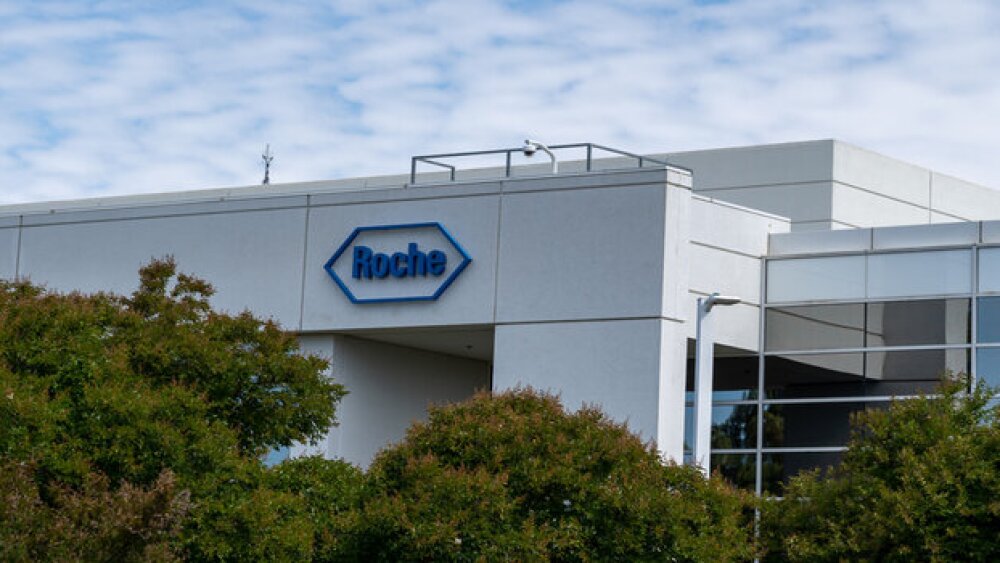After sustaining two Phase III fails, Roche and Exelixis finally reported a late-stage win for their combination regimen of Tecentriq and Cabometyx in metastatic castration-resistant prostate cancer.
Pictured: Roche Diagnostics headquarters in California/iStock, JHVEPhoto
The combination of Roche’s Tecentriq (atezolizumab) and Exelixis’ Cabometyx (cabozantinib) met one of the primary endpoints in the pivotal Phase III CONTACT-02 trial, significantly improving progression-free survival in patients with metastatic castration-resistant prostate cancer, according to interim data released Monday by the companies.
In terms of overall survival (OS), however, the combination regimen was only able to elicit a “trend toward improvement” which fell short of statistical significance, the companies reported. CONTACT-02 will continue to its next planned analysis of OS.
In terms of safety, the trial found no new signals of concern and the overall adverse event profile was consistent with the known side effects of the individual therapies.
The companies did not provide specific survival data in its announcement but promised to do so at an upcoming medical conference. Roche and Exelixis will also discuss CONTACT-02’s data with the FDA, Exelixis’ Chief Medical Officer Vicki Goodman said in a statement.
Despite having been treated with novel hormonal therapies, many metastatic castration-resistant prostate cancer (mCRPC) patients still face poor prognoses of less than two years, Goodman said. Patients whose cancers progress despite treatment need new treatment options, and early results from CONTACT-02 highlight the potential of the Tecentriq-Cabometyx combo to fill this need, she added.
Neither Tecentriq nor Cabometyx is approved for prostate cancer.
The combination regimen leverages the mechanistic synergy between the two therapies. Cabometyx, a tyrosine kinase inhibitor, works by making a tumor more sensitive to immune responses. Tecentriq is a PD-1/PD-L1 blocker that works by preventing cancer cells from evading the immune system and boosting the body’s natural cytotoxic response.
To see this synergistic promise through to the market, Roche and Exelixis signed a clinical trial collaboration agreement in February 2017 and launched a Phase Ib study to target locally advanced or metastatic solid tumors.
The partnership, however, has recently yielded mostly disappointing results. In December 2022, the partners suffered a Phase III defeat in non-small cell lung cancer when data from the CONTACT-01 study showed that Tecentriq with Cabometyx could not significantly improve OS in the second-line setting.
A few months later, in March 2023, the companies stumbled again—this time in renal cell carcinoma—with data from the CONTACT-03 study showing no significant benefit to progression-free survival after treatment with the combination regimen.
Tristan Manalac is an independent science writer based in Metro Manila, Philippines. He can be reached at tristan@tristanmanalac.com or tristan.manalac@biospace.com.






